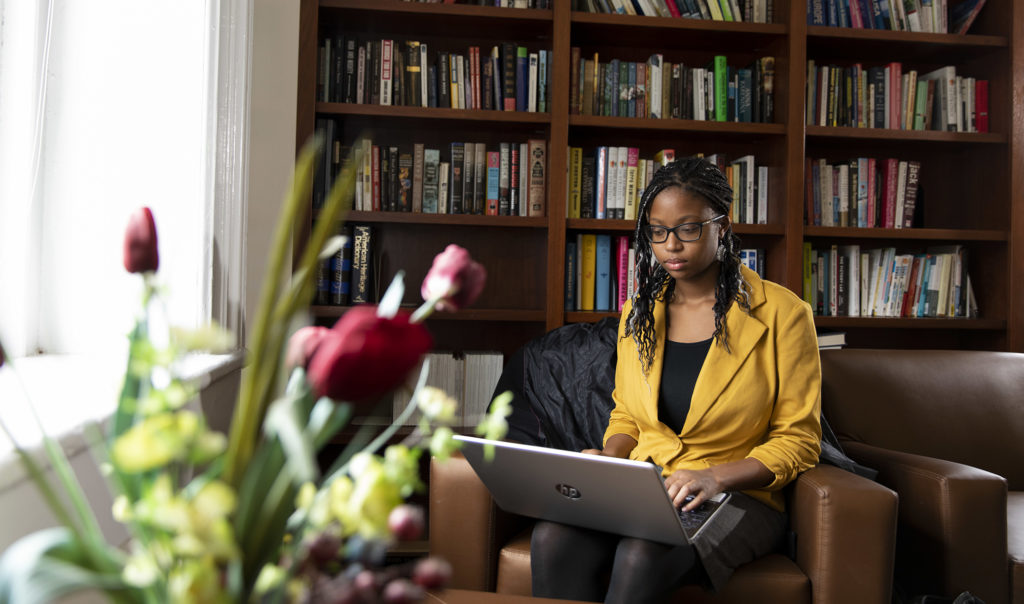Some companies have been forced to eliminate or postpone their summer internships due to the COVID-19 pandemic. Others have sought ways to virtually transform them.
To help businesses navigate this transition, the University of Georgia’s Innovation District recently hosted two virtual forums where professionals shared best practices, goals and challenges of virtual summer internships. Across the two sessions, 60 participants heard from a panel of nine industry leaders, including Home Depot, Synovus and UPS, among others.
“It’s important for us that our students are successful and that, even in these disrupted times, they have opportunities to get the best experiences they can,” said Crystal Leach, director of industry collaborations in UGA’s Office of Research. “So, it’s important that our partners are also successful and can continue providing those opportunities.”
During the sessions, representatives explored how to prepare for remote onboarding, how companies can best communicate their cultures virtually, and how to encourage students to take advantage of their redesigned internships.
“Our people are our cornerstone, and we want every incoming intern to truly know how much we value them,” said Isobel Egbarin, a talent acquisition specialist with UPS and roundtable participant. “The driving force behind UPS stems from the many contributions of our employees, and we want to do everything we can to ensure that each intern has a meaningful experience with us.”
Communication was key for industry leaders. Without face-to-face interaction, businesses need clear direction to help interns get the most out of their experiences. Others saw an opportunity to include interns in more meetings, conversations and online events, thanks to the convenience of virtual platforms.
“This transition has called for all hands on deck,” Egbarin said. She explained how UPS established new intern coordinator roles for each large business function to promote uniform onboarding and communication throughout the company. “The times we are in highlight the importance of living out our core values as an organization.”
Christie Dougherty, a recruiting coordinator at SAS Institute, recommended finding alternative ways to engage students whose summer internships were postponed. “Students rely on their internships to build meaningful experience to supplement their education, and we are always amazed at the curiosity they bring into our organization,” she said.
SAS was able to virtually convert the majority of its internships and offered short-term training and development programs in place of the few it could not. “We knew that continuing our intern program in a virtual environment was critical to our brand and our commitment to developing the workforce of the future,” Dougherty said.
The Innovation District will continue identifying topics and delivering virtual content to help industry professionals navigate the challenges posed by COVID-19.
“Our hope is that the roundtable could be a small part in helping businesses, and all of us, move forward together,” Leach said.
UGA’s Innovation District works to drive economic development and community impact through innovation, entrepreneurship and experiential learning.
